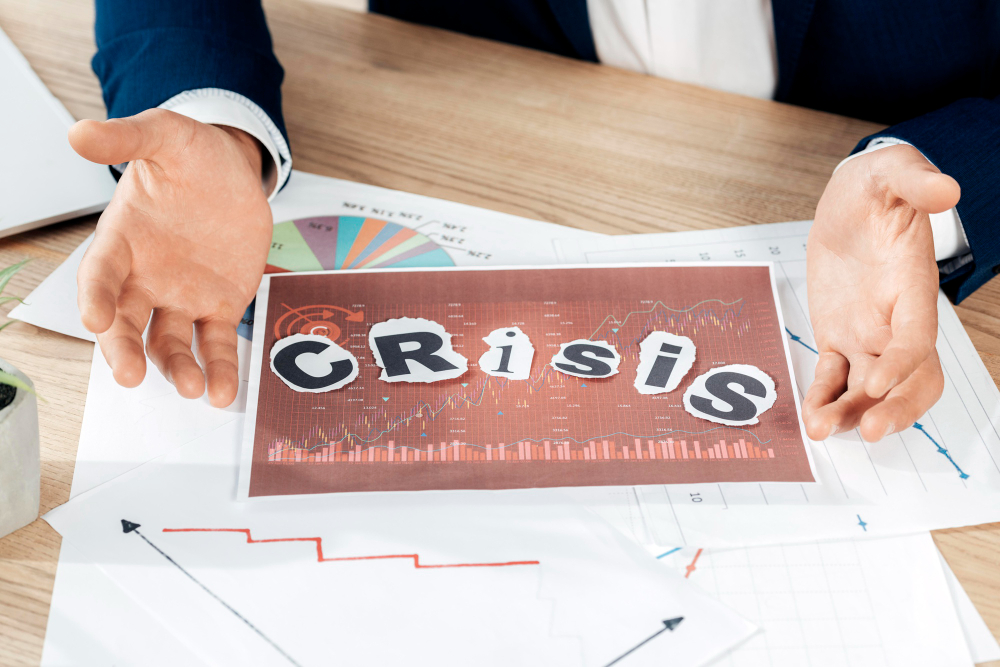How to Navigate a Financial Crisis: Steps for Recovery

Financial crises can strike unexpectedly, leaving individuals and businesses overwhelmed and uncertain about their future. Whether it’s a personal financial setback or a broader economic downturn, knowing how to navigate a financial crisis is essential for recovery. By taking proactive steps and making informed decisions, you can better position yourself to overcome the challenges and emerge stronger. In this article, we will outline a series of practical steps you can take to navigate a financial crisis and regain financial stability.
Assessing the Situation
When faced with a financial crisis, the first step is to assess the situation thoroughly. This involves taking a close look at your current financial standing, understanding the root causes of the crisis, and evaluating the impact it has had on your income, assets, and liabilities. Here are some key actions to take during this phase:
1. Gather and Analyze Financial Information:
Collect all relevant financial documents, such as bank statements, bills, and loan agreements. Review them carefully to get a clear picture of your financial obligations, outstanding debts, and available resources.
2. Identify the Causes:
Determine the factors that led to the financial crisis. This could include a job loss, a business failure, excessive debt, or unexpected expenses. Understanding the causes will help you devise effective strategies for recovery.
3. Prioritize Expenses:
Differentiate between essential and non-essential expenses. Cut back on discretionary spending and focus on meeting your basic needs, such as food, shelter, utilities, and healthcare. Create a realistic budget that aligns with your current financial situation.
Taking Immediate Actions
Once you have assessed the situation, it’s time to take immediate actions to address the crisis head-on. The following steps will help you stabilize your finances and prevent further damage:
1. Build an Emergency Fund:
Start setting aside a portion of your income into an emergency fund. Even small contributions can add up over time and provide a financial buffer for unexpected expenses or emergencies.
2. Communicate with Creditors:
If you’re struggling to make payments, contact your creditors and explain your situation. They may be willing to work out a temporary repayment plan or offer alternative solutions to help you manage your debt.
3. Explore Additional Income Sources:
Consider exploring additional sources of income to supplement your existing earnings. This could involve taking on a part-time job, freelancing, or starting a side business. Diversifying your income can provide a much-needed boost during a financial crisis.
Long-Term Recovery Strategies
Once you have stabilized your immediate financial situation, it’s important to focus on long-term recovery strategies. These steps will help you regain financial stability and build a stronger foundation for the future:
1. Review and Adjust Financial Goals:
Revisit your financial goals and adjust them based on the lessons learned from the crisis. Prioritize saving, reducing debt, and creating a robust financial plan that accounts for potential risks and uncertainties.
2. Seek Professional Help:
Consider consulting with a financial advisor or a credit counselor who can provide expert guidance tailored to your specific situation. They can help you create a personalized roadmap for recovery and provide valuable insights into managing your finances effectively.
3. Invest in Financial Literacy:
Take the time to educate yourself about personal finance. Read books, attend workshops, or take online courses to enhance your financial literacy. The more knowledge you acquire, the better equipped you’ll be to make informed decisions and avoid future financial pitfalls.
Conclusion
In conclusion, navigating a financial crisis requires resilience, strategic thinking, and proactive actions. By following the steps outlined in this article, you can effectively recover from a financial setback and rebuild your financial stability.
Start by assessing your current financial situation, identifying the causes of the crisis, and prioritizing your expenses. This will give you a clear understanding of your financial obligations and help you make necessary adjustments to your budget.
Remember, navigating a financial crisis takes time, patience, and perseverance. Stay positive and remain committed to your financial recovery plan. With determination and the right strategies in place, you can overcome the crisis and emerge stronger on the other side.
FAQs
1. Can I recover from a financial crisis without seeking professional help?
While seeking professional help, such as consulting with a financial advisor or credit counselor, can provide valuable guidance, it is possible to recover from a financial crisis without professional assistance. However, it may require additional effort and research on your part to educate yourself about personal finance and make informed decisions.
2. How long does it take to recover from a financial crisis?
The duration of financial recovery varies depending on the severity of the crisis, individual circumstances, and the steps taken to address the situation. It’s important to approach recovery with a long-term perspective, as it may take months or even years to fully regain financial stability. Remember to stay focused, disciplined, and adaptable throughout the recovery process.











